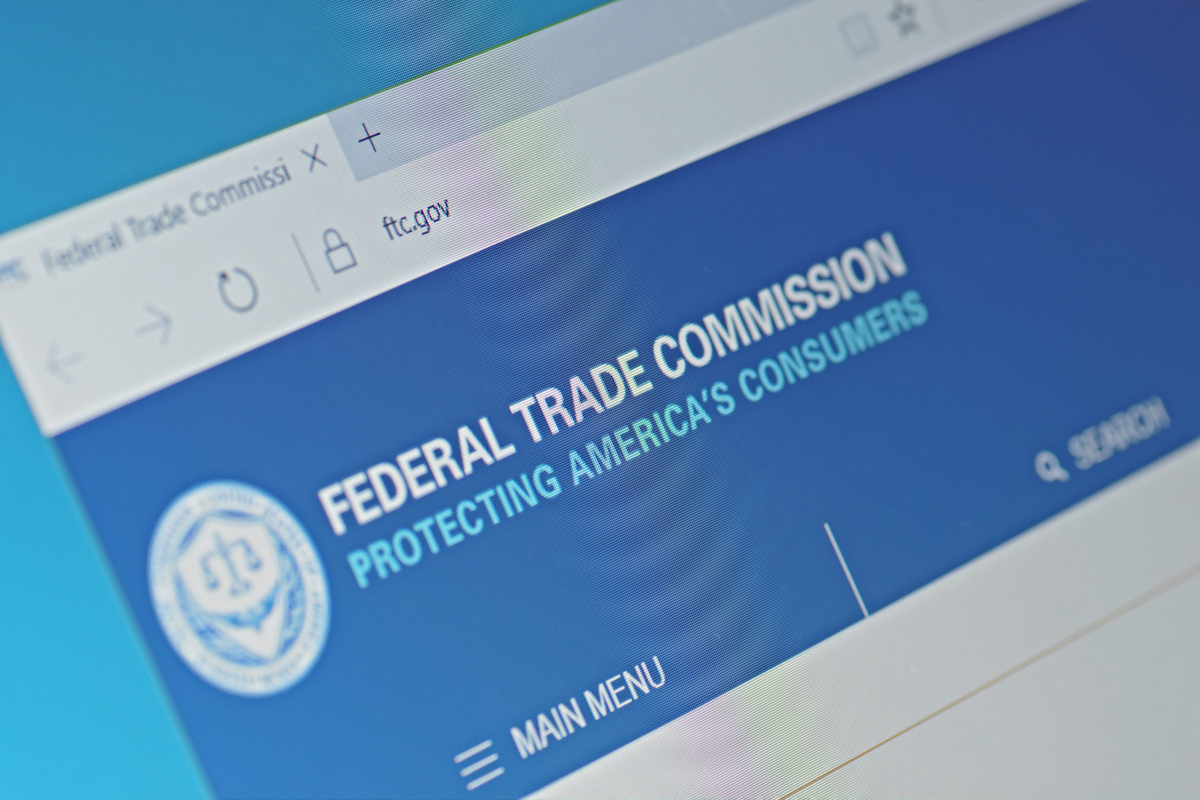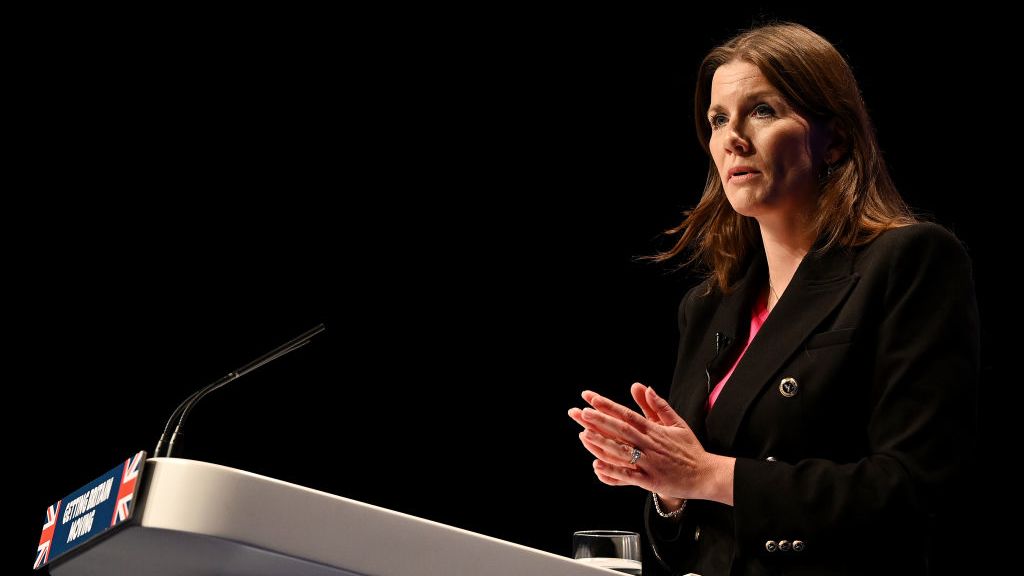What is the Federal Trade Commission (FTC)?
We look into what the US government agency does in more detail


Sign up today and you will receive a free copy of our Future Focus 2025 report - the leading guidance on AI, cybersecurity and other IT challenges as per 700+ senior executives
You are now subscribed
Your newsletter sign-up was successful
The FTC, or Federal Trade Commission to give it its full name, is an independent agency within the US government that oversees consumer protection and civil antitrust law.
It was founded in 1914 by the Federal Trade Commission Act, which was signed into law by President Woodrow Wilson that same year and prohibits unfair methods of competition, as well as unfair acts or practices relating to commerce.
Here we explain everything you need to know about the FTC, both as a consumer and a business.
What is the purpose of the FTC?
The FTC has two primary purposes. The first is to ensure that businesses both get a fair deal in the marketplace while operating and don't try to engage in illegal behaviour themselves, such as anti-competitive practices. The second is to protect consumers from businesses that may be behaving unfairly or deceptively.
For businesses, this could mean ensuring that organizations in the same sector don't conspire to drive up prices, or that one or two companies don't form a monopoly or duopoly through mergers and acquisitions.
For consumers, this would include things like targeting scammers, deceptive advertising, or financial misselling.
How does the FTC work?
The FTC is made up of three bureaus: The Bureau of Competition, the Bureau of Consumer Protection, and the Bureau of Economics. Each bureau looks after a different part of the commission's remit.
Sign up today and you will receive a free copy of our Future Focus 2025 report - the leading guidance on AI, cybersecurity and other IT challenges as per 700+ senior executives
The Bureau of Competition
The FTC Bureau of Competition, as its name suggests, oversees competition in the market. This means ensuring that organisations aren't colluding to fix prices or engaging in bid-rigging, for example, or that single companies aren't behaving in an anti-competitive manner to build a monopoly, such as through acquiring all their competitors.
It does this by enforcing the United States antitrust laws. The first, the Sherman Act, was passed in 1890 and was followed in 1914 by two further laws: The Federal Trade Commission Act and the Clayton Act.
In the words of the FTC, these laws " form the foundation of [the country's] free market economy".
It adds that the antitrust laws "promote the interests of consumers; they support unfettered markets and result in lower prices and more choices".
The Bureau of Consumer Protection
While the Bureau of Competition protects consumers by ensuring a free market economy, the Bureau of Consumer Protection has a more direct hand in ensuring the general public is treated fairly when interacting with businesses, for example by countering fraudulent and deceptive practices.
The bureau subdivided into eight divisions: Division of Privacy and Identity Protection, Division of Advertising Practices, Division of Consumer & Business Education, Division of Marketing Practices, Division of Consumer Response & Operations, Division of Financial Practices, Division of Litigation Technology & Analysis, and Division of Enforcement,.
Respectively, these deal with
- Consumer privacy, credit reporting, identity theft, and information security;
- Unfair or deceptive advertising and marketing practices that raise health and safety concerns, as well as those that cause economic injury;
- Providing consumers with the tools and information they need to make informed decisions, as well as ensuring businesses understand their obligations under the law;
- Fighting internet and telephone scams, business opportunity scams, deceptive telemarketing or direct mail marketing schemes, and spam;
- Supporting the Division of Consumer & Business Education and Division of Enforcement by collecting and analysing data on activities related to the FTC's consumer protection mission;
- Promoting truthfulness and fairness in the provision of financial services;
- Supporting the investigation and litigation of FTC cases, including providing e-discovery and digital forensics services, forensic accounting services, and assisting paralegals in their investigation and litigation of cases;
- Enforcing federal court injunctions in FTC cases, coordinating FTC actions with law enforcement agencies, developing reviewing and enforcing consumer protection rules, coordinating initiatives to address current consumer protection issues, and administering the Bureau's bankruptcy programme.
Bureau of Economics
The Bureau of Economics examines the economic impact of FTC actions by providing analysis for consumer protection and competition investigations and looking at the economic impact of regulations on businesses and consumers.
In short, it acts to support the other two bureaus and report the Commission's actions plus their impacts back to all relevant parties.
In addition to these three bureaus, the FTC also has nine offices that deal with everything from policy planning to congressional relations to international affairs, as well as eight regional offices in Seattle, San Francisco, Los Angeles, Dallas, Atlanta, Cleveland, New York, and Chicago.
A full list of the offices and what they do can be found here.
How does the FTC enforce laws?
To enforce the three antitrust laws it oversees, the FTC carries out investigations and, if it finds an organisation to be in violation of any of them, sues the companies involved.
It's worth noting that the FTC can only bring civil cases against those it has found to have been breaking the law. Any activities related to the FTC's investigation that are found to be criminal would be referred to the Department of Justice.
Who runs the FTC?
As with its counterpart the Federal Communications Commission (FCC), the FTC is a bipartisan organisation, meaning it operates independently from any political party. It also operates independently from the government.
It's headed by five commissioners, one of whom acts as the chairman, who are nominated by the President and confirmed by the Senate. No more than three commissioners can be of the same party and each one serves a seven-year term.
The current commissioners, who were all sworn in during 2018, are:
- Joseph J. Simons (chairman)
- Noah Joshua Phillips
- Rohit Chopra
- Rebecca Kelly Slaughter
- Christine S. Wilson

Jane McCallion is Managing Editor of ITPro and ChannelPro, specializing in data centers, enterprise IT infrastructure, and cybersecurity. Before becoming Managing Editor, she held the role of Deputy Editor and, prior to that, Features Editor, managing a pool of freelance and internal writers, while continuing to specialize in enterprise IT infrastructure, and business strategy.
Prior to joining ITPro, Jane was a freelance business journalist writing as both Jane McCallion and Jane Bordenave for titles such as European CEO, World Finance, and Business Excellence Magazine.
-
 Researchers call on password managers to beef up defenses
Researchers call on password managers to beef up defensesNews Analysts at ETH Zurich called for cryptographic standard improvements after a host of password managers were found lacking
-
 Is there a future for XR devices in business?
Is there a future for XR devices in business?In-depth From training to operations, lighter hardware and AI promise real ROI for XR – but only if businesses learn from past failures
-
 Three things you need to know about the EU Data Act ahead of this week's big compliance deadline
Three things you need to know about the EU Data Act ahead of this week's big compliance deadlineNews A host of key provisions in the EU Data Act will come into effect on 12 September, and there’s a lot for businesses to unpack.
-
 UK financial services firms are scrambling to comply with DORA regulations
UK financial services firms are scrambling to comply with DORA regulationsNews Lack of prioritization and tight implementation schedules mean many aren’t compliant
-
 What the US-China chip war means for the tech industry
What the US-China chip war means for the tech industryIn-depth With China and the West at loggerheads over semiconductors, how will this conflict reshape the tech supply chain?
-
 Former TSB CIO fined £81,000 for botched IT migration
Former TSB CIO fined £81,000 for botched IT migrationNews It’s the first penalty imposed on an individual involved in the infamous migration project
-
 Microsoft, AWS face CMA probe amid competition concerns
Microsoft, AWS face CMA probe amid competition concernsNews UK businesses could face higher fees and limited options due to hyperscaler dominance of the cloud market
-
 Online Safety Bill: Why is Ofcom being thrown under the bus?
Online Safety Bill: Why is Ofcom being thrown under the bus?Opinion The UK government has handed Ofcom an impossible mission, with the thinly spread regulator being set up to fail
-
 Can regulation shape cryptocurrencies into useful business assets?
Can regulation shape cryptocurrencies into useful business assets?In-depth Although the likes of Bitcoin may never stabilise, legitimising the crypto market could, in turn, pave the way for more widespread blockchain adoption
-
 UK gov urged to ease "tremendous" and 'unfair' costs placed on mobile network operators
UK gov urged to ease "tremendous" and 'unfair' costs placed on mobile network operatorsNews Annual licence fees, Huawei removal costs, and social media network usage were all highlighted as detrimental to telco success